6 Common Childhood Medications We Secretly Miss Taking
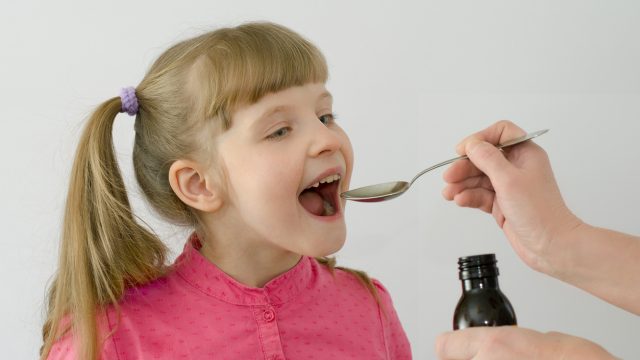
Certain childhood delights hold a special place in our hearts. Maybe it’s a favorite sugary cereal, a classic video game, or a toy that can now only be found on eBay. It could even be… the sweet, tart crunch of baby aspirin?
It’s true. While of course medicine is serious business (and needs to be kept in a secure place out of kids’ reach), we still remember certain childhood medications fondly. That’s because they tasted sweet, and—well, that was it. They tasted sweet, even though they were medicine! Read on for six of our favorites, and to reminisce about your own.
READ THIS NEXT: 4 Medications Doctors Will Never Prescribe Again.
1
Amoxicillin
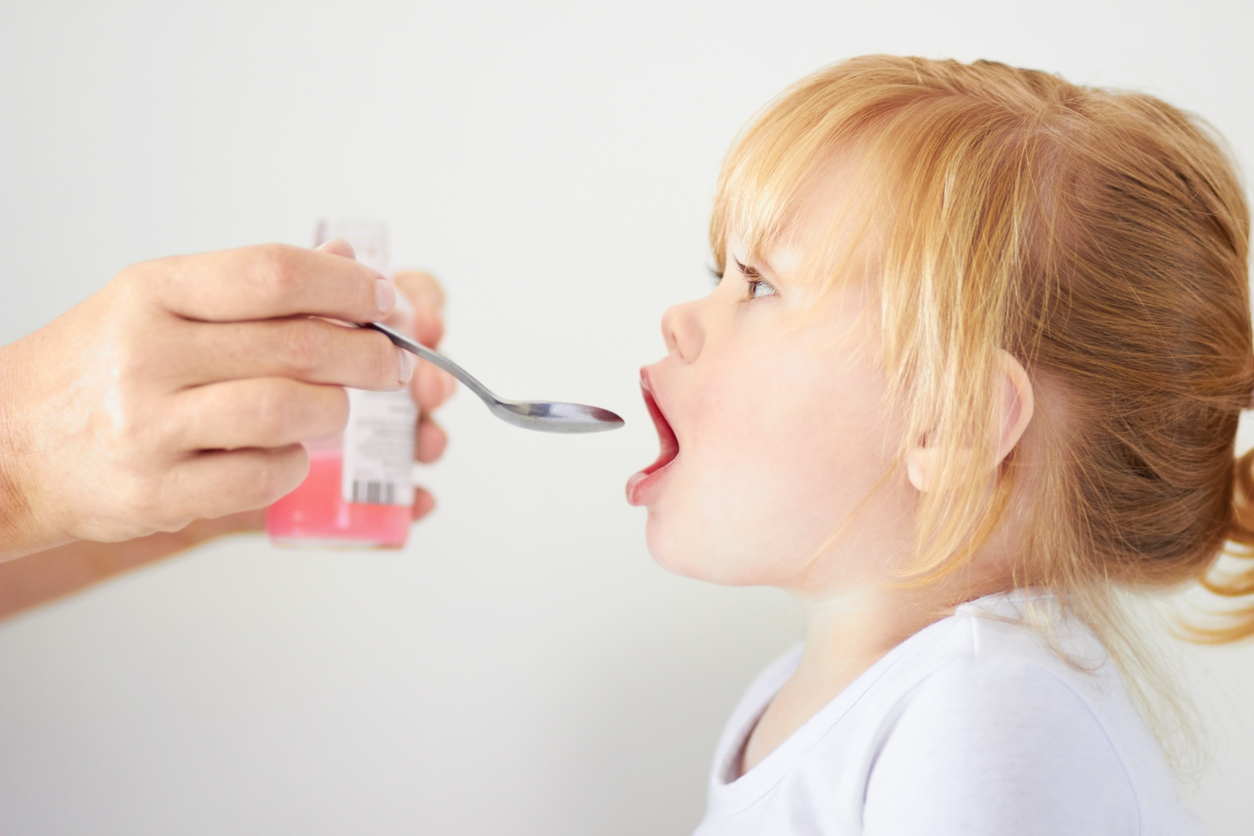
An antibiotic commonly prescribed for kids with bacterial infections such as strep throat, this pink, gooey syrup is perhaps the most fondly remembered childhood medicine. “I was a carrier for strep throat when I was a kid until I got my tonsils out, [and] I got bubblegum medicine like every 4 weeks,” recalled one Twitter user. “Best time of my life.”
Sadly, some of today’s kids won’t get to experience the classic flavor of amoxicillin. “It is this eggnog texture white stuff now and tastes very terrible,” lamented another Twitter user. “I am sorry my kids missed out on its glory days.”
2
Dimetapp
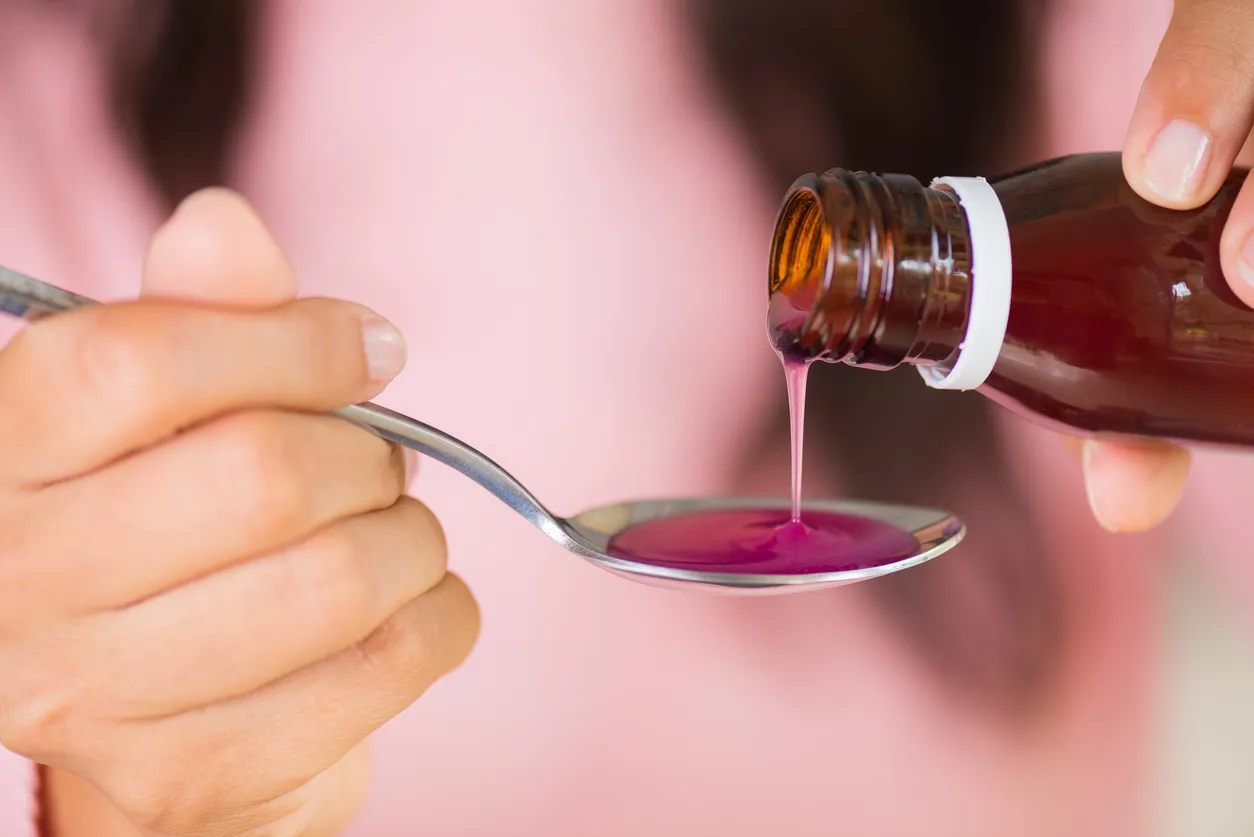
When we think of the flavors we loved in our childhood, grape comes to mind—a purple, artificial-tasting kind of grape, found in treats like Hubba Bubba bubblegum, Blow-Pops, Nerds, or… Dimetapp. A medicine for coughs, colds, and allergy symptoms, Dimetapp is fondly remembered by adults. So fondly, in fact, that one person compared it to the “Proustian madeleine” in an article published by The Atlantic.
“Several people mentioned to me that the flavor they most associated with childhood illness was that of grape Dimetapp cough syrup,” author Julie Beck mused. She then tried Dimetapp as an adult, offering this report: “My adult assessment is that it tastes pretty good. Like a melted grape Jolly Rancher, but slightly more acrid.”
READ THIS NEXT: Storing Your Medication Here Can Increase Side Effects, Study Finds.
3
Pinworm medicine

There is nothing even remotely sweet about pinworms. The American Academy of Pediatrics calls them “unpleasant to look at,” but another way to describe them is “the stuff nightmares are made of.” They cause itching, but are otherwise harmless, and can be treated with an oral medication that’s available in both prescription and over-the-counter (OTC) form.
However, someone had the great idea to make the medicine banana flavored. Yum! When we were kids, the sweet taste and creamy texture were almost pleasing enough to distract us from the fact that worms were literally living in our butts.
4
Luden’s cough drops
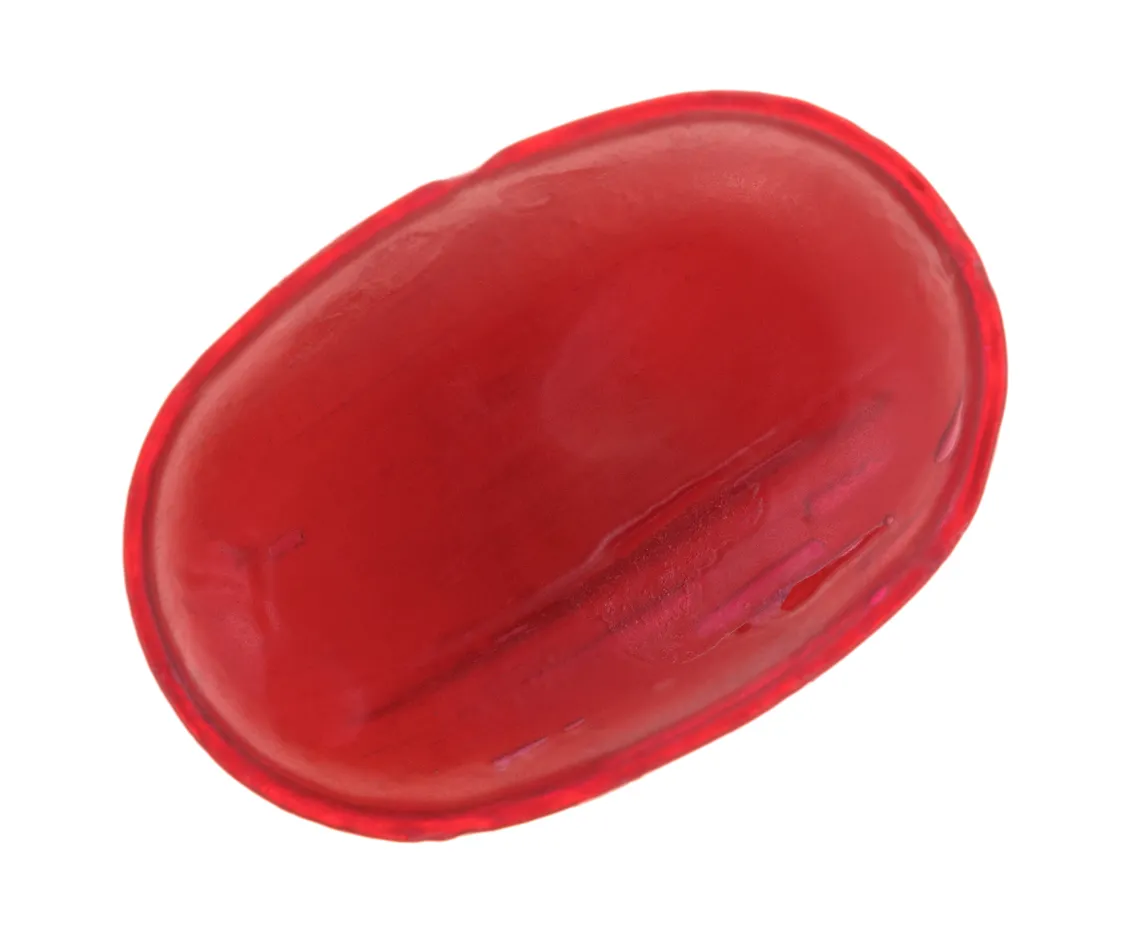
Having a cough and a sore throat? Major bummer. Getting to basically suck on candy for the entire duration of an illness? A win for any kid. Luden’s cough drops in the tantalizing “wild cherry” flavor (not just cherry, mind you—wild cherry) didn’t taste particularly menthol-y or medicinal in any way (I see you, Ricola!), but apparently they contain an oral demulcant that really can help soothe a sore throat or persistent cough. For those looking to expand their palate, the beloved cough drops also came in blue raspberry flavor.
For more health news sent directly to your inbox, sign up for our daily newsletter.
5
Pepto Bismol
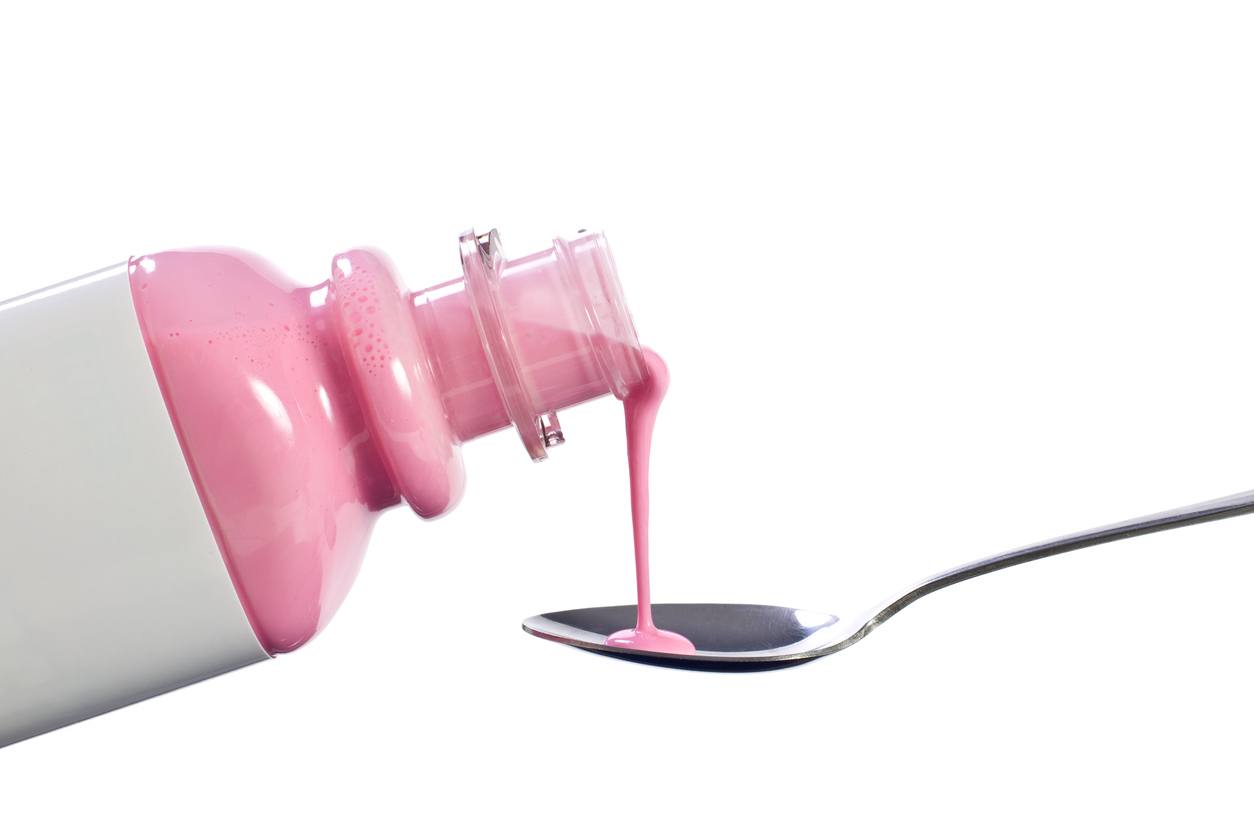
A pink fave like amoxicillin, Pepto Bismol was confusing to our senses. The color indicated bubblegum, but it tasted like… mint? As kids, we didn’t stop to ruminate about this mystery, instead focusing on the fact that maybe—just maybe—Pepto Bismol would stop us from barfing.
In an article on the topic, the LA Times called Pepto Bismol “Probably the only substance on the planet that looks like bubble gum but tastes like mint,” and explained that the original formula contained stomach-soothing wintergreen oil. While today’s Pepto no longer has that ingredient, it’s kept the minty flavor that we liked so much as children.
Our parents may not have known this, but Pepto isn’t actually meant for kids under the age of 12. “For kids ages two to eleven, turn to Pepto Kids, specially formulated for your little ones,” suggests the Pepto Bismol web site.
6
Flintstones vitamins

Would it be so terrible for vitamin manufacturers to make grown-up vitamins and supplements that taste like the original Flintstones vitamins did? “The cartoon family made nutrition as fun and delicious as Pez,” enthused an article on MeTV. “The chewable vitamins have evolved over the years, adding characters and gummy varieties, but for Boomers and Gen-X, nothing beats the originals.”
Flintstones tasted like candy, for sure, but with a soupçon of what can only be described as a vitamin-y tartness. They came in different colors and in the forms of different characters, although it was difficult to tell them apart. A word of warning: while remembering them warmly in an article published by Spoon University, one writer cautioned that Flintstones “taste absolutely awful” when paired with milk.
Best Life offers the most up-to-date information from top experts, new research, and health agencies, but our content is not meant to be a substitute for professional guidance. When it comes to the medication you’re taking or any other health questions you have, always consult your healthcare provider directly.